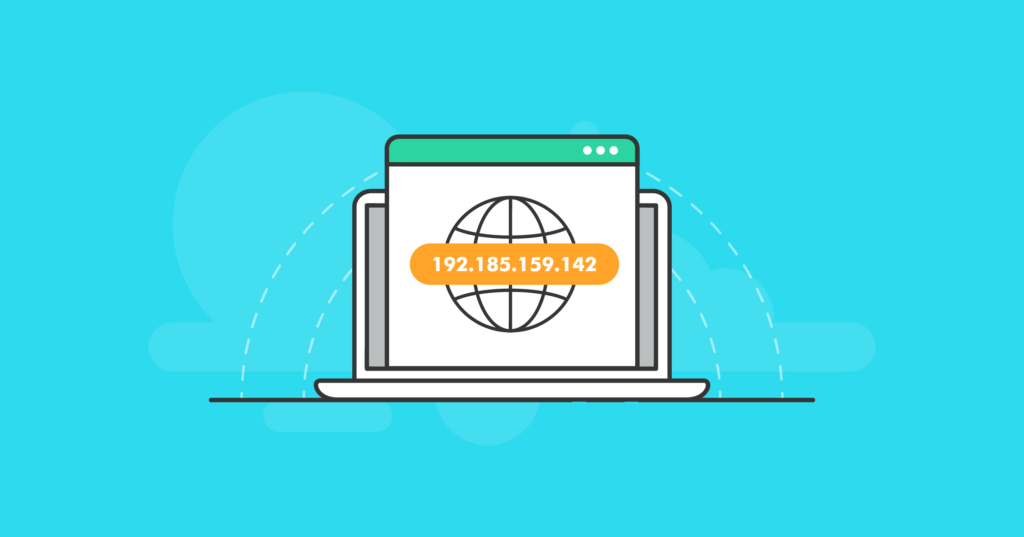How IP Lookup Can Identify the Location of a Website
Created on 12 March, 2023 | ip | 1,069 views | 2 minutes read

Image source: ithemes.com
Geolocation is a powerful technology that allows us to determine the physical location of a device or, in the case of websites, the server hosting them. By leveraging IP lookup, it is possible to identify the approximate geographic location of a website.
This article explores how IP lookup works and its significance in various applications.
Understanding IP Lookup
IP lookup is the process of mapping an IP address to a specific geographic location. Every device connected to the internet
is assigned a unique IP address, which can be used to retrieve information about its location. IP lookup databases contain
records associating IP addresses with corresponding locations, such as country, city, and even latitude and longitude coordinates.
GeoIP Databases and Services
There are several GeoIP databases and services available that provide IP geolocation information. These databases are compiled
through various means, including data provided by internet service providers, regional internet registries, and other sources.
Popular GeoIP database providers include MaxMind, IP2Location, and GeoLite.
Applications of IP Geolocation
IP geolocation has numerous applications across various industries:
1. Targeted Advertising
Advertisers can leverage IP geolocation to serve location-specific advertisements to users. By knowing the location of website
visitors, advertisers can deliver targeted content and promotions based on their geographic location, increasing the relevance
and effectiveness of their campaigns.
2. Fraud Prevention
IP geolocation is instrumental in detecting and preventing fraudulent activities. By analyzing the geographic location associated
with an IP address, organizations can identify suspicious patterns or discrepancies that may indicate fraudulent behavior, such
as account takeovers or unauthorized access attempts.
3. Content Localization
Content providers can use IP geolocation to deliver localized content based on the user's location. This allows websites to
tailor their content, language, and services to specific regions, providing a personalized user experience that resonates with
their target audience.
4. Security and Access Control
IP geolocation plays a crucial role in security and access control mechanisms. By determining the location of incoming traffic,
organizations can enforce access policies based on geographic regions. This can help protect sensitive data, prevent unauthorized
access, and detect potential security threats.
5. Network Optimization
Network administrators can utilize IP geolocation to optimize network performance. By understanding the geographic distribution
of their user base, they can strategically deploy servers or content delivery networks (CDNs) to minimize latency and improve
user experience by reducing network congestion.
Accuracy and Limitations
While IP geolocation provides valuable insights, it is important to note that it has certain limitations. The accuracy of IP
geolocation can vary depending on factors such as the quality of the IP database, dynamic IP assignments, and the use of proxy
servers or virtual private networks (VPNs , which can mask the true location of a device. Additionally), IP geolocation is based on publicly available data and may not always reflect the precise physical location of a device.
It's important to understand that IP geolocation is an estimation rather than an absolute certainty. The accuracy of the results can range from city-level to broader regional or country-level identification. The reliability of the data depends on the quality and freshness of the IP geolocation database being used.
In conclusion, IP lookup and geolocation provide valuable information about the location of a website or device based on its IP address. This technology has numerous applications in targeted advertising, fraud prevention, content localization, security, access control, and network optimization. However, it's crucial to be aware of the limitations and potential inaccuracies associated with IP geolocation. By considering these factors, businesses and organizations can leverage IP lookup effectively while understanding its boundaries.
Popular posts
-
Converting Between Long and Short URLs - URL Conversion Made Easy
3,381 views
-
Identifying and Addressing IP Reputation Issues - Exploring Blacklists
ip | 2,573 views
-
The Power of Ping Tests - Boosting Network Performance
2,199 views
-
Implementing DNS Caching and Load Balancing - Maximizing DNS Performance
DNS | 2,193 views
-
Difference Between Public and Private IP Address
ip | 1,880 views